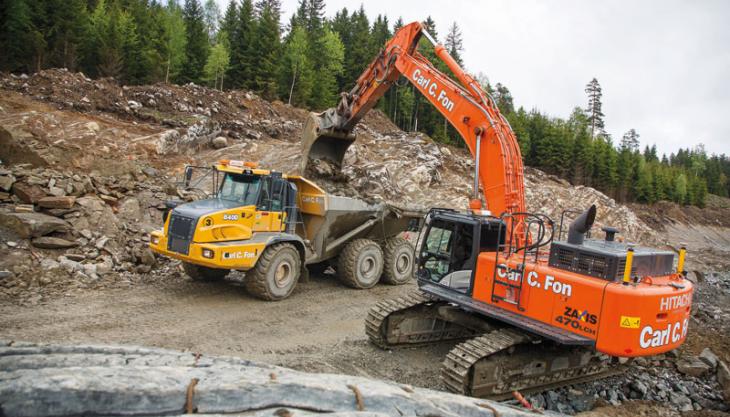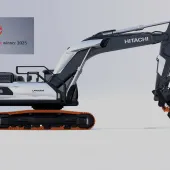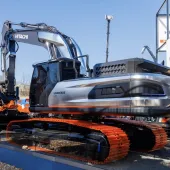Hitachi and Shell join forces to test Shell GTL fuel

Companies work together to test suitability of gas-to-liquid fuel in construction operations
HITACHI Construction Machinery (Europe) NV (HCME) and Shell have joined forces to test the suitability of Shell GTL (gas-to-liquids) fuel in construction operations. The latest range of Hitachi Zaxis-5 excavators is being used to trial the innovative liquid fuel as a solution to environmental and quality concerns surrounding conventional crude oil-derived diesel.
There is a growing lobby within the European construction industry – and society at large – for the use of cleaner-burning fuel products. This is in response to the increasing importance of: new technology to satisfy EU Stage IIIB engine emission regulations; and manufacturers’ corporate social responsibility (CSR) activities that strive to reduce the environmental impact of their products.
Shell GTL fuel is produced from natural gas by means of a chemical transformation process. It is colourless, almost odourless, highly biodegradable and can help to reduce local emissions and engine noise (in certain types of engines and under certain driving conditions). It has a high cetane number (75/80 versus 48/56 for refined diesel), burns more cleanly, and produces fewer nitrogen oxides, sulphur oxides and particulate matter than regular diesel.
With more than 35 years of research in this field, Shell claim to be at the forefront of GTL technology and production. HCME switched over to Shell GTL fuel for the first fill of the machines at their Amsterdam factory in May 2013 with the aim of achieving a consistently high level of fuel quality.
‘Shell GTL fuel is compatible with existing diesel technology and supply infrastructure,’ commented Igor de Liefde, who is responsible for product regulations in HCME’s Engineering Department. ‘This means that we can use it in existing fleets – for both new and older heavy-duty diesel engines – without the need for any modifications, cleaning of fuel systems or additional investment. This makes it a cost-effective, easy-to-use and easy-to-implement solution, which, importantly, doesn’t add complexity to a customer’s business.’
Earlier this year, HCME and Shell sanctioned a cold operability test with two Stage IIIB-compliant ZX470LCH-5s in Norway. Owned by Carl C Fon, one of Norway’s largest Hitachi customers, the Zaxis excavators were engaged on a significant road construction project in temperatures down to –20°C, which were deemed to be ideal conditions for the test.
‘The fact that it needed to be tried out in severe winter conditions meant that Norway and this site in particular were ideal,’ said owner Carl Christian Fon. ‘I have full confidence in Shell GTL fuel. We had no running problems, fuel consumption was similar to diesel and there were less local emissions. As it can be a cost-effective fuel option, we would have no hesitation in using it on a permanent basis.’
Petter Flåtten, one of the ZX470LCH-5 operators, added: ‘I really couldn’t tell the difference in performance between Shell GTL fuel and regular diesel. But if I took a blindfold test with two identical machines using the different fuels, I would be able to identify Shell GTL fuel, because: it doesn’t smell; there’s less engine noise; and it helps the machine to start easily in freezing conditions.’









